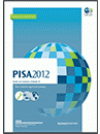This report focuses on the link between self-beliefs and maths achievement. It presents data which addresses the following areas:
- Average levels of learning beliefs among New Zealand students compared with the OECD average
- Impact of learning beliefs on maths achievement in New Zealand.
- Differences in learning beliefs by gender, ethnicity and socio-economic background
- Changes between 2003 and 2012 in the learning beliefs of New Zealand students
Key Results
- Learning beliefs have a strong impact on maths achievement in New Zealand. More confidence in solving maths problems (higher maths self-efficacy), is linked to higher maths achievement. Of participating countries, New Zealand had one of the strongest links between beliefs about their ability in maths (maths self-concept) and maths achievement.
- New Zealand students had similar beliefs in their maths ability to their international peers, but reported lower levels of confidence in solving maths problems.
- New Zealand results show that confidence in solving maths problems and beliefs in their maths ability have declined since 2003, despite an increase across OECD countries generally.
- On average, New Zealand boys are more likely to have a higher self-concept of their maths ability and are more confident in solving specific maths tasks than New Zealand girls (this gender difference is one of the largest among participating countries).
- On average, Māori and Pasifika students have lower levels of confidence in solving maths problems while Asian students have relatively high levels. Māori students also have lower beliefs in their own maths ability while Asian students have higher maths self-belief than other ethnic groups.
- Students from low socio-economic backgrounds reported lower levels of confidence and less positive beliefs in their maths ability. The difference in confidence in solving maths problems between New Zealand students from advantaged and disadvantaged backgrounds is greater than that of OECD students.
- Lower levels of confidence among New Zealand girls, Māori and Pasifika students, and students from low socio-economic backgrounds parallel lower maths achievement among these groups. A similar pattern is found for beliefs in maths ability and achievement

